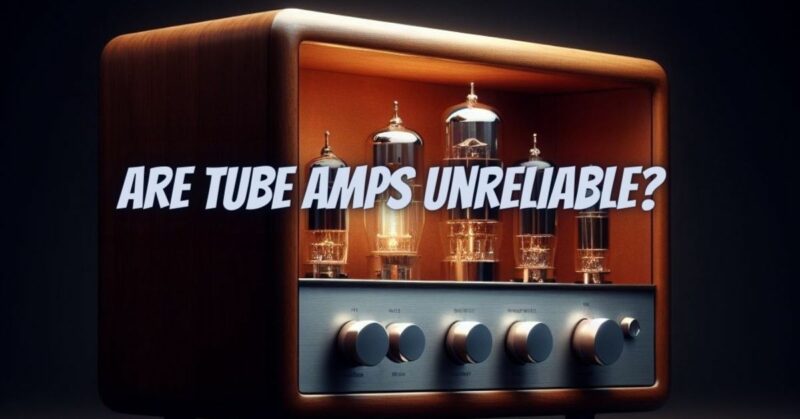Tube amplifiers, also known as valve amplifiers, have been a staple in the world of audio for decades. Revered for their warm, vintage sound and unique sonic characteristics, they have a dedicated following among audiophiles and musicians. However, a common misconception is that tube amps are unreliable and prone to frequent breakdowns. In this article, we will explore the reliability of tube amplifiers, separating fact from fiction to determine whether they deserve their reputation for being less dependable than solid-state counterparts.
Understanding Tube Amplifiers
Before delving into the reliability of tube amplifiers, it’s essential to understand how they work. Tube amplifiers use vacuum tubes (electron tubes or thermionic valves) to amplify audio signals. These tubes consist of an anode (plate), a cathode, and a grid. When a voltage is applied to the cathode, it emits electrons that flow to the anode, creating an electron flow or “current.” This current amplifies the incoming audio signal.
Tube amplifiers are known for their warm and harmonically rich sound, which is a result of the way tubes operate. However, this unique operation also contributes to some of the misconceptions about their reliability.
Common Myths About Tube Amp Reliability
- Tubes Are Fragile and Prone to Failure
One of the most prevalent myths about tube amplifiers is that the tubes themselves are fragile and prone to failure. While it is true that vacuum tubes have a finite lifespan, modern tubes are far more reliable and durable than their vintage counterparts. Manufacturers have made significant advancements in tube technology, leading to increased longevity.
In typical use, tubes can last anywhere from 2,000 to 10,000 hours or more, depending on the specific type and usage conditions. This means that for most users, tubes do not need frequent replacement. Regular maintenance and tube replacement when necessary can keep a tube amp operating smoothly.
- Frequent Repairs Are Necessary
Another misconception is that tube amplifiers require frequent repairs and are unreliable in the long term. In reality, tube amplifiers, when properly cared for, can be quite reliable. While they may require occasional maintenance, such as tube replacements or bias adjustments, this is not significantly different from the maintenance requirements of solid-state amplifiers.
Additionally, the perception of frequent repairs is often exaggerated because tube amp enthusiasts tend to be passionate about their equipment and may be more proactive in addressing issues, even minor ones. This can create the impression that tube amps are inherently less reliable when, in fact, they are simply being well-maintained.
- Tubes Are Hard to Find
Some potential buyers are deterred from tube amplifiers because they believe finding replacement tubes can be difficult or expensive. While it’s true that vintage and rare tubes can be costly and hard to come by, most users of modern tube amps can easily find suitable replacement tubes from reputable manufacturers. Many reputable tube retailers and distributors offer a wide range of options to meet the needs of different tube amp models.
- Tubes Are Sensitive to Vibrations and Shocks
Another myth is that tube amplifiers are extremely sensitive to vibrations and shocks, which can lead to frequent failures. While it’s true that excessive mechanical stress can damage tubes, modern tube amplifiers are designed with vibration resistance in mind. Proper handling and transportation precautions can help minimize the risk of damage during transport or use in live settings.
In conclusion, the reputation of tube amplifiers as unreliable devices is largely undeserved. While tube amps may require occasional maintenance, including tube replacements, they can be just as reliable as solid-state amplifiers when cared for properly. Modern tube technology, improved manufacturing processes, and the availability of replacement tubes have contributed to increased reliability.
Ultimately, the decision to use a tube amplifier should be based on your sonic preferences and needs rather than unfounded fears of unreliability. With proper care and attention, a tube amp can provide years of faithful service, delivering the unique and sought-after sound that has made them enduring favorites among audiophiles and musicians alike.


